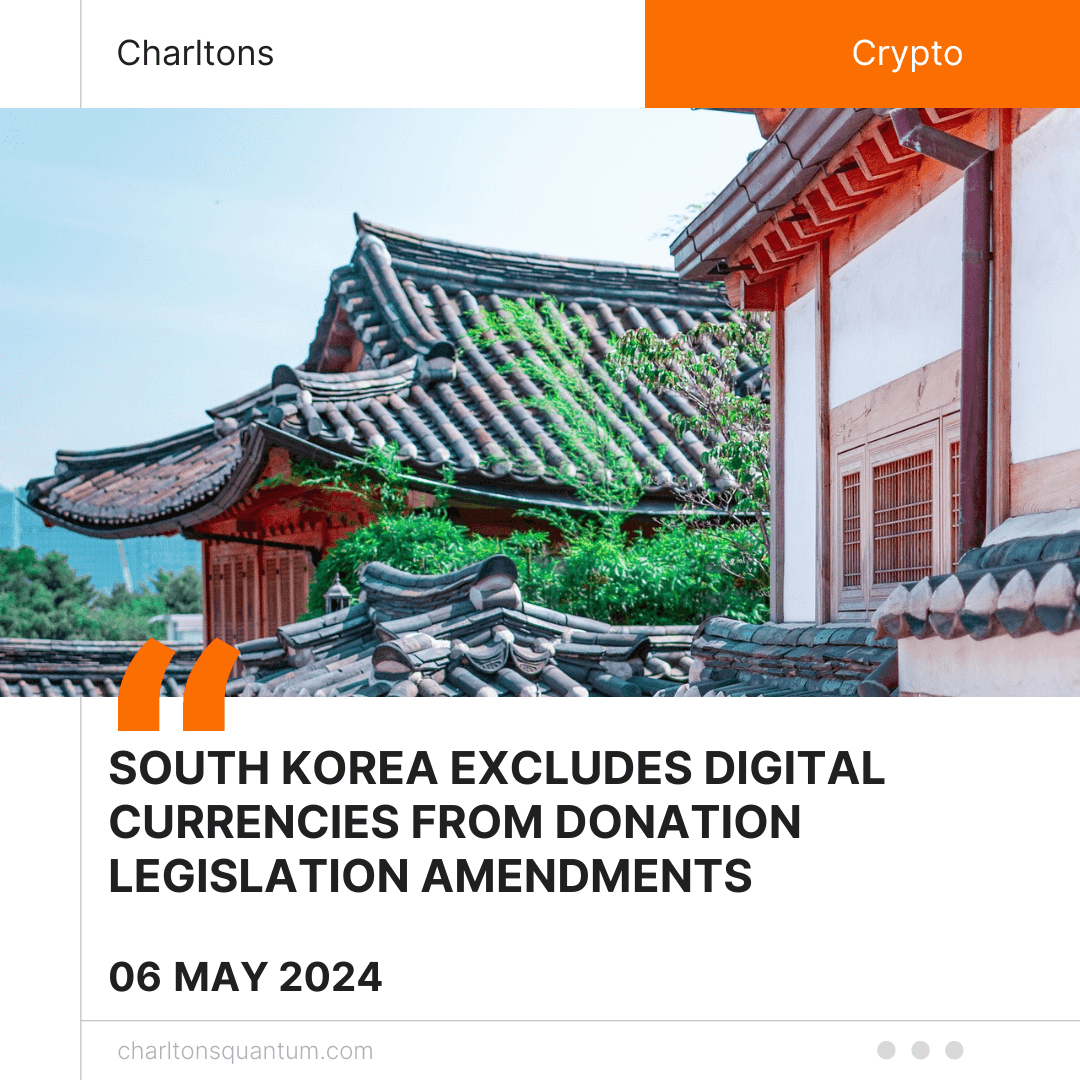
South Korea has excluded digital currencies from newly amended donation legislation, potentially dealing a blow to the country’s charities and donation drives. The Ministry of Public Administration revealed that amendments to South Korea’s “Donations Act” have been filed, but they restrict the use of crypto assets for donations. Starting in July, various new donation methods will be permitted, including department store gift vouchers, stocks, and loyalty points from Korean internet giant Naver, but digital assets like Bitcoin will not be accepted.
The Donations Act, initially enacted in 2006, is being updated to accommodate modern payment methods and technological advancements. While the amendments expand donation methods to include various options such as department store gift vouchers and blockchain-issued gift vouchers, digital asset donations are notably excluded. Despite the popularity of cryptocurrencies in South Korea, the Ministry did not provide reasoning for this exclusion.
The legislation will permit donations in local government-issued, KRW-pegged stablecoins, aligning with efforts to modernize donation practices while ensuring regulatory compliance. However, this exclusion means that local charities will miss out on the growing trend of cryptocurrency donations, estimated at over $2 billion globally as of January 2024, according to The Giving Block.
In contrast to South Korea’s stance, more than half of American charities now accept donations in digital assets, indicating a growing acceptance of cryptocurrencies in the global charity sector. However, South Korea has been actively addressing crypto-related crimes and financial fraud, aiming to elevate its temporary crypto crime investigative unit into an official department.
Despite regulatory hurdles, Singapore-based crypto exchange Crypto.com has been striving to establish a presence in the South Korean market. However, South Korean authorities identified Anti-Money Laundering (AML)-related issues in the exchange’s data submissions and launched an “emergency on-site inspection” to monitor its activities.
South Korea’s decision to exclude digital currencies from donation legislation amendments reflects its cautious approach to regulatory oversight in the crypto space. While the amendments aim to modernize donation practices, the exclusion of digital assets may hinder local charities’ access to alternative forms of funding. Additionally, ongoing regulatory scrutiny highlights the challenges faced by crypto exchanges seeking to operate in South Korea’s market.





